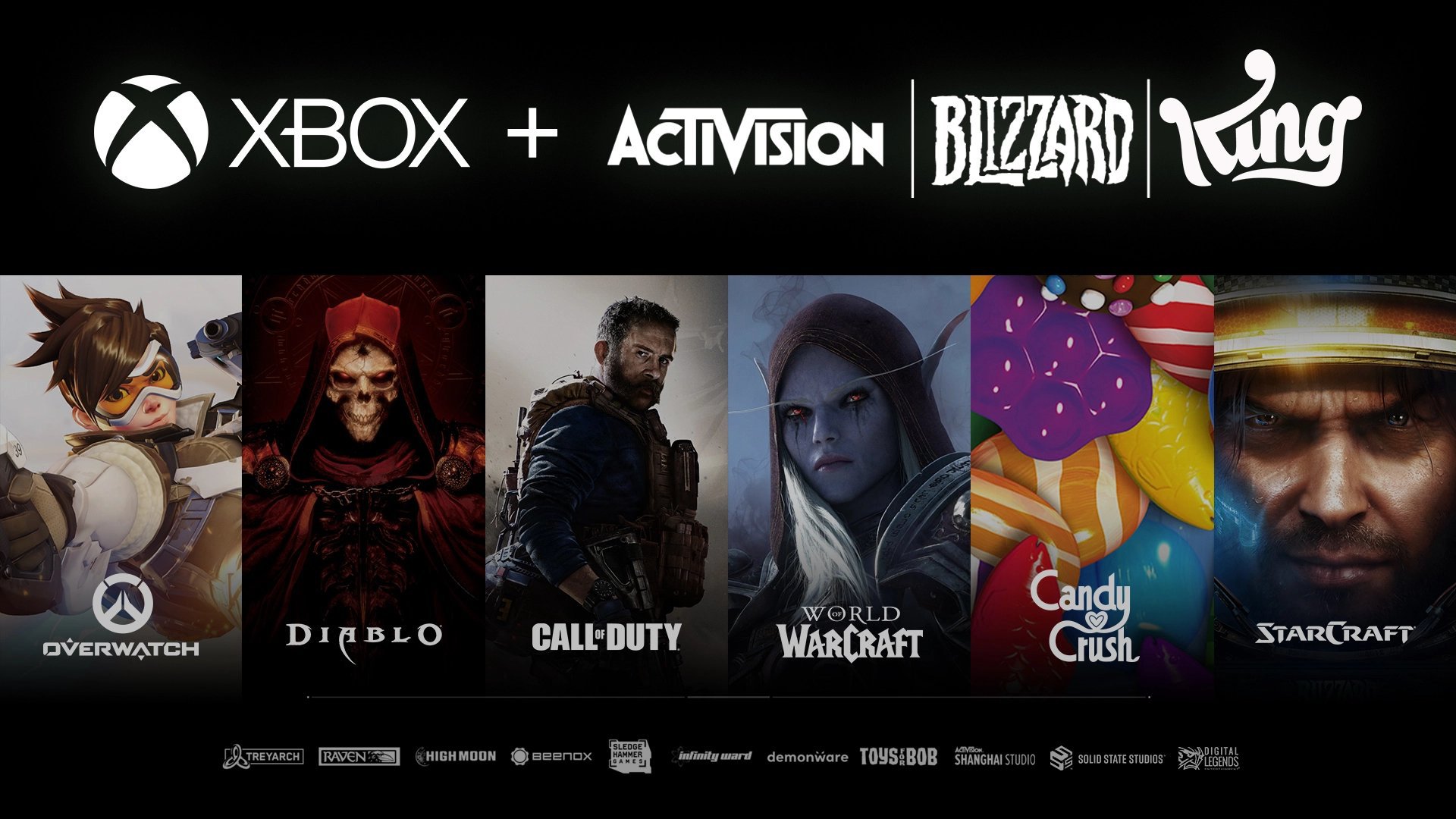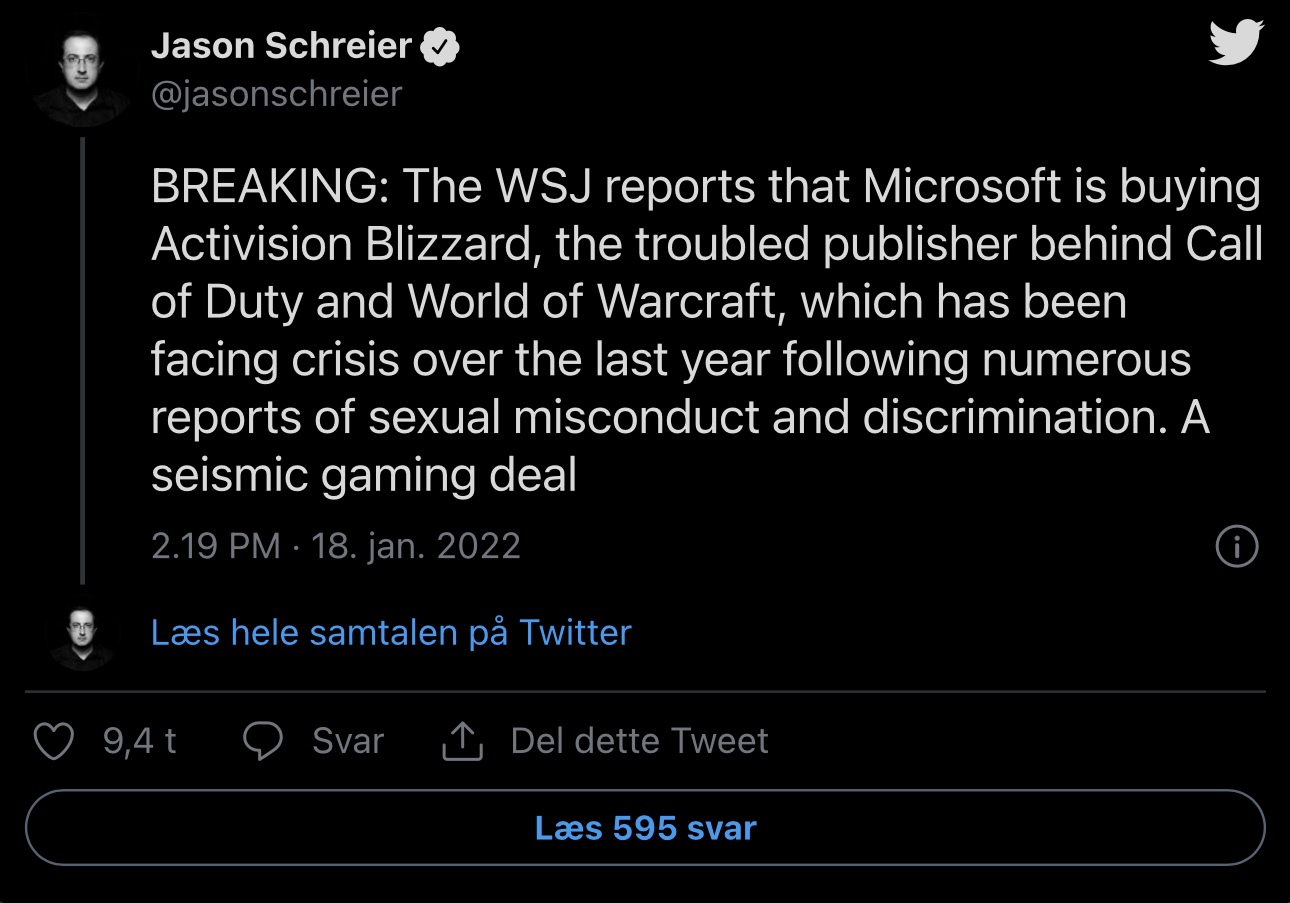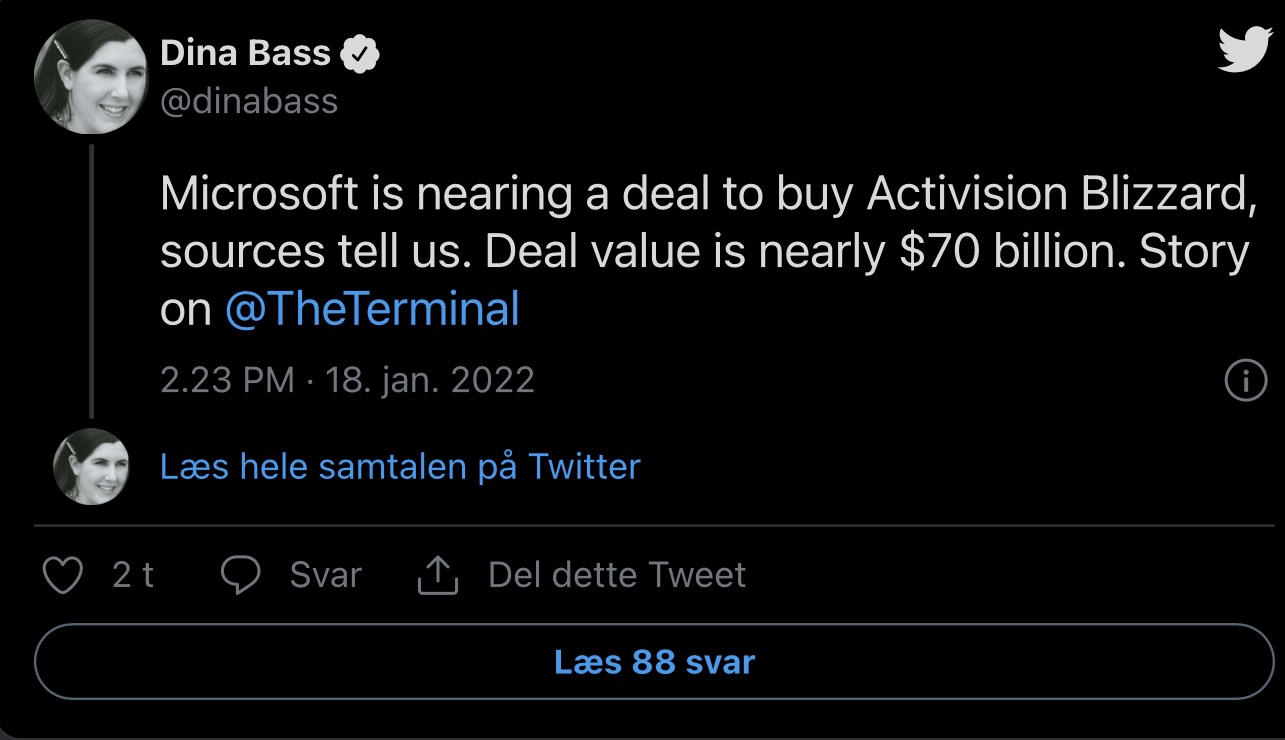 Bede-x Bede-x | Skrevet 18/01-22 14:38, rettet 23/01-22 09:19 | Microsoft er i færd med at købe Activision Blizzard. World of Warcraft, Call of Duty, Starcraft, Tony Hawk, Spyro, Diablo, Overwatch, Crash Bandicoot… Det hele.
Nu officielt:
Creators of Call of Duty, Warcraft, Candy Crush, Tony Hawk, Diablo, Overwatch, Spyro, Hearthstone, Guitar Hero, Crash Bandicoot, StarCraft and more join Team Xbox
As ... Se hele indlæggetMicrosoft er i færd med at købe Activision Blizzard. World of Warcraft, Call of Duty, Starcraft, Tony Hawk, Spyro, Diablo, Overwatch, Crash Bandicoot… Det hele.
Nu officielt:
Creators of Call of Duty, Warcraft, Candy Crush, Tony Hawk, Diablo, Overwatch, Spyro, Hearthstone, Guitar Hero, Crash Bandicoot, StarCraft and more join Team Xbox
As a team, we are on a mission to extend the joy and community of gaming to everyone on the planet. We all know that gaming is the most vibrant and dynamic form of entertainment worldwide and we’ve experienced the power of social connection and friendship that gaming makes possible.
As we pursue that mission, it is incredibly exciting to announce that Microsoft has agreed to acquire Activision Blizzard.
Over many decades, the studios and teams that make up Activision Blizzard have earned vast wellsprings of joy and respect from billions of people all over the world. We are incredibly excited to have the chance to work with the amazing, talented, dedicated people across Activision Publishing, Blizzard Entertainment, Beenox, Demonware, Digital Legends, High Moon Studios, Infinity Ward, King, Major League Gaming, Radical Entertainment, Raven Software, Sledgehammer Games, Toys for Bob, Treyarch and every team across Activision Blizzard.
Until this transaction closes, Activision Blizzard and Microsoft Gaming will continue to operate independently. Once the deal is complete, the Activision Blizzard business will report to me as CEO, Microsoft Gaming.

Mere her:
https://news.xbox.com/en-us/2022/01/18/welcoming-activision-blizzard-to-microsoft-gaming/

 | Spiller nu: Halo: The Master Chief ..., Dying Light, Earth Defense Force 2025
|
|